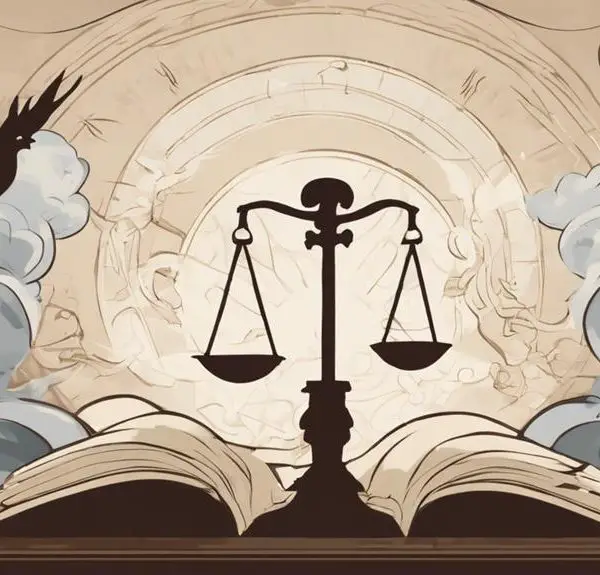Yield to temptation of a lie in the Bible, and witness the dire consequences that follow.

Consequences of Lying in the Bible
Ah, lying – that age-old hobby that's been tripping humanity since the Garden of Eden. You'd think after Adam and Eve's fashion faux pas with fig leaves, we'd have learned our lesson.
But as you'll see, the Bible is rich with tales that serve as stark reminders of the perilous path dishonesty paves. From the demise of Ananias and Sapphira to the curse on Gehazi, each story you're about to explore underscores a profound truth about integrity and the consequences of its absence.
So, let's embark on this journey together, and uncover what happens when fibs take the front seat.
Key Takeaways
- Lying leads to immediate and severe consequences, as seen in the demise of Ananias and Sapphira.
- Deception disrupts divine plans but can also unfold them, illustrated by Jacob's deceit.
- Covetousness and dishonesty bring about downfall and isolation, highlighted by Achan's and Gehazi's stories.
- Biblical narratives emphasize the importance of honesty and integrity in maintaining communal trust and divine favor.
The Fall of Adam and Eve

Deception's roots in human history trace back to the fall of Adam and Eve, a pivotal event that underscores the profound consequences of lying. This narrative, found in the Judeo-Christian tradition, illustrates original sin stemming from a lie—an act that not only altered the course of human destiny but also embedded a moral lesson about truth's intrinsic value.
The Garden's temptation, presented by the serpent, was the catalyst for this foundational deceit. You're invited to explore how this act of falsehood set a precedent for understanding the gravity of lying.
The serpent's cunning words to Eve highlight a manipulation of truth, exploiting human vulnerability and curiosity. This moment, emblematic of the original sin, serves as a profound reflection on the nature of deception. It wasn't merely the act of eating from the forbidden tree that constituted the sin, but rather the decision to embrace falsehood over divine truth.
This narrative urges you to consider the far-reaching impacts of deceit, not only on oneself but on the fabric of society. It's a stark reminder that the consequences of lying extend beyond immediate repercussions, touching the very essence of human ethical and moral principles.
The Punishment of Achan

Continuing our exploration of biblical narratives, we now examine the story of Achan, whose transgression and subsequent punishment further illuminate the grave consequences of deceit in human conduct. Achan's greed not only led to his downfall but also contributed to Israel's defeat, showcasing the ripple effect of individual actions on a collective scale.
- Achan's Transgression: Illicitly taking spoils from Jericho, violating divine command.
- Immediate Consequences: His actions directly led to Israel's defeat at Ai, highlighting the weight of individual wrongdoing on communal welfare.
- Divine Revelation: Achan's sin was exposed through a process ordained by God, underscoring the inevitability of truth surfacing.
- Punishment: Achan, along with his family and possessions, faced a severe penalty, reflecting the seriousness with which deceit and disobedience were regarded.
- Reflective Lesson: This narrative serves as a cautionary tale about the perils of covetousness and the importance of integrity.
Through Achan's story, we're reminded of the profound implications of our actions and the inherent value of truthfulness and accountability. His example serves as a sobering reminder of the costs of greed and dishonesty, not just for the individual but for the community at large.
The Demise of Ananias and Sapphira

In the narrative of Ananias and Sapphira, we witness the dire consequences of lying to the Holy Spirit, a transgression that leads to their immediate demise and serves as a stark warning about the gravity of deceit in the eyes of the divine. This story, deeply embedded within the Acts of the Apostles, illustrates not just the personal ramifications of dishonesty, but also its broader implications for community integrity.
The swift divine judgment that befalls Ananias and Sapphira underscores a critical lesson: the sacredness of truth within the fledgling Christian community. Their act of deception, ostensibly a private sin, shatters the communal trust and exposes the fledgling congregation to spiritual peril. The severity of their punishment – death – highlights the non-negotiable importance of honesty in maintaining the spiritual and moral fabric of the community.
Reflecting on this episode, it becomes apparent that the incident serves a dual purpose. It acts as a cautionary tale about the perils of deceit, especially against the Holy Spirit, and reinforces the fundamental value of transparency and integrity in nurturing a healthy, spiritually vibrant community. Through their story, we're reminded of the profound consequences that can arise from undermining the very principles that bind us together.
The Curse on Gehazi

Gehazi's downfall, rooted in his act of deceit, offers another profound biblical lesson on the severe repercussions of lying, especially when it disrupts the sanctity of divine trust and mission. His story, as presented in the scriptures, emphasizes that dishonesty, particularly in the realm of spiritual leadership, has far-reaching consequences.
Consider the following points:
- Gehazi's leprosy wasn't just a physical ailment but a symbolic representation of the spiritual decay caused by deceit.
- Elisha's response to Gehazi's lie wasn't merely punitive; it was a manifestation of divine justice, reflecting the gravity of Gehazi's transgression.
- The curse of leprosy, traditionally seen as a mark of shame and uncleanliness, underscored the social and spiritual isolation that dishonesty can engender.
- This incident serves as a cautionary tale about the dangers of exploiting one's position for personal gain, especially within a spiritual context.
- It also highlights the importance of transparency and integrity in one's actions and the inevitable consequences of straying from these virtues.
In essence, Gehazi's narrative is a stark reminder of the perils of lying, particularly when it betrays a divine mission. It underscores the necessity for honesty and integrity, especially for those in positions of spiritual authority.
The Deception of Jacob

Shifting our focus to another significant biblical figure, we encounter Jacob, whose acts of deceit further illuminate the complex dynamics of honesty and divine purpose in scriptural narratives. Jacob's quest for his brother Esau's birthright and blessing, a crucial moment, highlights the intricate relationship between deception and destiny in biblical stories. This episode not only foregrounds Jacob's inheritance but also sets the stage for Esau's reaction, an integral part of the narrative that underscores the profound consequences of lying.
Aspect |
Analysis |
|---|---|
Deception's Motive |
Jacob's desire for the birthright reflects ambition and a complex understanding of his destiny. |
Esau's Reaction |
Esau's immediate loss and long-term forgiveness towards Jacob reveal the depth of interpersonal relationships and the possibility of reconciliation. |
Divine Intervention |
Despite the deceit, divine plans unfold through Jacob, suggesting a nuanced view of morality. |
Consequences |
Jacob faces immediate consequences, including familial discord, highlighting the tangible repercussions of deceit. |
Legacy |
The inheritance secured through deceit shapes the future of Jacob's lineage, illustrating the lasting impact of one's actions. |
Reflecting on Jacob's story encourages a deeper examination of the consequences of our actions and the paradoxical ways in which truth, deceit, and divine purpose can intertwine, shaping destinies and moral landscapes.
Frequently Asked Questions
How Does the Concept of Lying in the Bible Relate to Modern-Day Ethical Dilemmas in Professional Settings?
You're tackling how lying, as viewed in broader ethical discussions, maps onto dilemmas in today's workplaces. It's about corporate integrity and ethical leadership.
Reflect on scenarios where honesty shapes trust and outcomes. In professional settings, the stakes are high. Decisions influenced by truth or deceit impact reputation, morale, and success.
Analyzing this through a scholarly lens, you appreciate the timeless relevance of ethical conduct, underscoring its importance in nurturing a principled business environment.
Are There Examples in the Bible Where Lying Is Considered Acceptable or Justified, and Under What Circumstances?
You're diving into whether the Bible ever views lying as justifiable. Interestingly, it does in certain cases.
Take Rahab's deception, for instance. She lied to protect Israelite spies, which was deemed acceptable due to her faith and the greater good it served.
Similarly, the Midwives' lies, told to save Hebrew babies, highlight a complex ethical stance where the intent and outcome significantly influence the moral judgment of the act.
Reflecting on these examples, it's clear that context matters greatly.
How Do Different Christian Denominations Interpret the Consequences of Lying, and Does This Impact Their Teachings on Confession and Forgiveness?
You're exploring how Christian denominations interpret lying's ramifications, which significantly influences their denominational doctrines, confession practices, and teachings on forgiveness. Each denomination has nuanced views, reflecting deeply on moral and ethical guidelines.
This variance affects how you're taught to confess and seek forgiveness, highlighting the critical role of denominational beliefs in shaping one's understanding of morality and redemption.
It's a reflective journey through the complexities of faith and personal integrity.
Can the Lies Told by Individuals in the Bible Be Connected to Broader Themes of Trust and Betrayal in Human Relationships Today?
Absolutely, the lies told by individuals in biblical narratives can be linked to broader themes of trust and betrayal that resonate deeply within family dynamics and social trust today.
When you reflect on these stories, it becomes clear how lying can undermine relationships, eroding the foundational trust that bonds individuals together.
This analysis prompts you to consider the profound impact that honesty and transparency have in maintaining healthy, trust-filled relationships in your own life.
How Do Biblical Teachings on Lying Influence Contemporary Legal Systems and Their Approach to Perjury and Truth-Telling Under Oath?
You're exploring how biblical teachings on honesty shape our legal systems, especially concerning perjury and oaths. It's intriguing to see how these ancient principles have laid the groundwork for legal precedents.
Reflecting on oath origins reveals a deep-rooted connection to these teachings. They've influenced contemporary legal practices, ensuring truth-telling under oath isn't just a legal requirement but a moral imperative, echoing the broader themes of trust and integrity in society.
Conclusion
Reflecting on these biblical narratives, it's evident that the consequences of lying extend beyond immediate repercussions, touching the spiritual and moral fabric of existence. These stories don't merely depict punishments; they serve as profound moral lessons on the destructive nature of deceit.
Through these accounts, you're invited to ponder the intrinsic value of truthfulness and its pivotal role in maintaining the sanctity of human relationships and divine commandments. Thus, lying isn't just a moral failing but a breach of divine trust.



Sign up